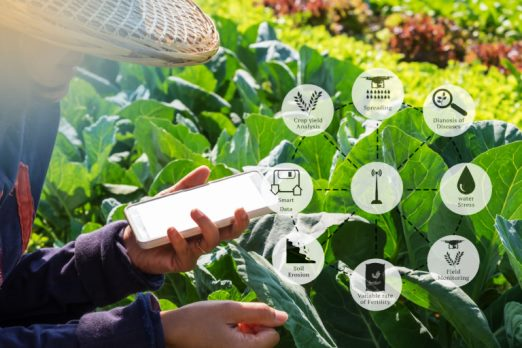Africa, with its vast arable land and favorable climate, has the potential to become a global food powerhouse. However, the continent’s agricultural sector has long been plagued by challenges such as low productivity, limited access to markets, and vulnerability to climate change. The emergence of data analytics-based agricultural innovation is revolutionizing the way farmers, policymakers, and agribusinesses approach farming in Africa.
The Power of Data Analytics in Agriculture
Data analytics involves the use of statistical and mathematical techniques to analyze data and extract insights. In agriculture, data analytics can be applied to various aspects of farming, including:
- Precision Farming: Data analytics can be used to optimize crop yields, reduce waste, and promote sustainable farming practices. By analyzing data from sensors, drones, and satellite imagery, farmers can gain insights into soil health, moisture levels, and crop growth.
- Predictive Analytics: Predictive models can be used to forecast crop yields, predict pest and disease outbreaks, and identify potential risks. This enables farmers to take proactive measures to mitigate risks and optimize their farming practices.
- Market Insights: Data analytics can provide valuable insights into market trends, consumer behavior, and price fluctuations. This enables farmers and agribusinesses to make informed decisions about production, pricing, and marketing.
Applications of Data Analytics in African Agriculture
- Crop Monitoring: Satellite-based crop monitoring systems can track crop growth, detect anomalies, and provide early warnings of potential threats. This enables farmers to take timely action to prevent crop losses.
- Soil Health Analysis: Data analytics can be used to analyze soil health, identify nutrient deficiencies, and recommend optimal fertilizer application.
- Irrigation Management: Data analytics can help farmers optimize irrigation systems, reducing water waste and improving crop yields.
- Supply Chain Optimization: Data analytics can be used to optimize supply chains, reducing post-harvest losses and improving the efficiency of agricultural markets.
Benefits of Data Analytics-Based Agricultural Innovation in Africa
- Increased Productivity: Data-driven farming practices can lead to improved crop yields, reduced waste, and increased productivity.
- Improved Decision-Making: Data analytics provides farmers and policymakers with valuable insights, enabling them to make informed decisions about farming practices, market trends, and policy interventions.
- Enhanced Food Security: By improving crop yields and reducing post-harvest losses, data analytics-based agricultural innovation can contribute to enhanced food security in Africa.
- Economic Benefits: Data analytics-based agricultural innovation can lead to increased economic benefits for farmers, agribusinesses, and national economies.
Challenges and Opportunities
- Data Availability: Limited access to data, particularly in rural areas, is a significant challenge to the adoption of data analytics-based agricultural innovation in Africa.
- Digital Literacy: Many farmers in Africa lack the digital literacy skills needed to effectively use data analytics tools and platforms.
- Infrastructure: Limited infrastructure, including internet connectivity and mobile networks, can hinder the adoption of data analytics-based agricultural innovation.
- Partnerships and Collaborations: Partnerships between governments, private sector companies, and research institutions can help address these challenges and promote the adoption of data analytics-based agricultural innovation.
Success Stories
- FarmDrive: FarmDrive is a Kenyan startup that uses data analytics to provide smallholder farmers with access to financial services, markets, and extension advice.
- Esoko: Esoko is a Ghanaian company that provides a cloud-based platform for agricultural market information, enabling farmers to access market prices, weather forecasts, and extension advice.
- Precision Agriculture for Development (PAD): PAD is a nonprofit organization that uses data analytics to promote precision agriculture practices among smallholder farmers in Africa.
Conclusion
Data analytics-based agricultural innovation has the potential to transform Africa’s agricultural sector, improving productivity, food security, and economic outcomes. While challenges remain, the opportunities for growth, innovation, and collaboration are significant. As the continent continues to adopt digital technologies, the future of African agriculture looks brighter than ever. By harnessing the power of data analytics, Africa can unlock its agricultural potential and become a major player in the global food system.

